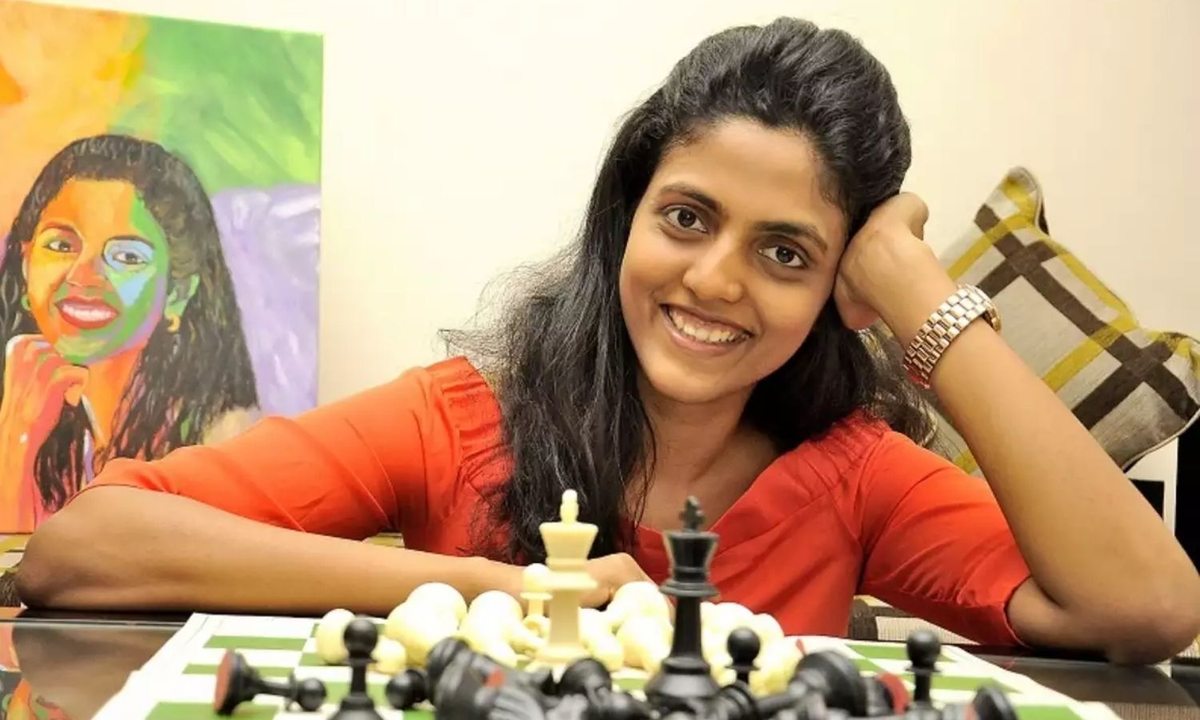In the quiet, intense world of competitive chess, where strategizing minds lock in silent combat, a new narrative is unfolding. It’s a story not just of pawns and kings, but of evolving roles, personal triumphs, and the audacious act of bringing one’s whole self – family included – to the professional arena. At the recent Chennai Grand Masters, Indian chess Grandmaster Harika Dronavalli offered a poignant glimpse into this modern reality, with her two-year-old daughter, Hanvika, by her side.
From Pregnancy to Parenthood: A Continuing Journey
This isn`t Harika`s first time challenging traditional expectations in Chennai. Just three years prior, at the 2022 FIDE Olympiad in Mahabalipuram, she made headlines by competing while heavily pregnant, a testament to her unwavering dedication. The image of an ambulance on standby, and her doctor close at hand, etched itself into the annals of sports history, a stark reminder of the unique pressures faced by female athletes. Fast forward to 2025, and Harika, now 34, returns to the same region, not as a story of impending motherhood, but as a living example of motherhood integrated into the life of an elite athlete.
While the broader chess world might now focus on other rising stars, for Harika, this tournament holds a different, deeply personal significance. It marks the first time Hanvika truly experiences her mother’s professional world. As Harika herself eloquently put it, “I`m happy she could witness my life in a way.” It`s a sentiment that resonates far beyond the 64 squares of the chessboard.

The Grandmaster`s Daily Gambit: Balancing Board and Baby
The integration of family life into the demanding schedule of a professional athlete is, as any parent can attest, no trivial feat. Harika’s decision to bring Hanvika to Chennai, a relatively short distance from her Hyderabad home, was a deliberate choice to explore this new dynamic. It`s an experiment in redefining the boundaries of competitive focus, where the intense concentration required for a Grandmaster-level game must now coexist with the delightful, unpredictable needs of a toddler.
“Guilt happens when you leave your child back. I would love to have her everywhere,” Harika confessed. “The weather, and food won`t be the same, and it is still a lot of hassle. I`m happy she could witness my life in a way.”
This isn`t just about childcare; it`s about a profound emotional shift. The presence of her daughter offers a new lens through which Harika views her career. It introduces a dimension of joy and personal fulfillment that perhaps even a decisive win couldn`t fully capture. The very act of making her daughter “sit on the board, move the pieces” transcends mere play; it`s a passing of the torch, a silent invitation to a world her mother has dedicated a quarter-century to mastering.
The Unseen Challenges and Quiet Resilience
Of course, this evolving landscape is not without its hurdles. From logistical nightmares in travel to the constant adjustment of pre-game routines, the path is fraught with complexities. A minor fire scare at the tournament hotel, for instance, immediately amplified worries for her daughter`s safety, a stark reminder that the stakes extend far beyond the chessboard when family is involved. These are the silent battles fought off the board, demanding a resilience that goes beyond strategic prowess.
Harika`s perspective on her performance also reflects this shift. Despite losing her opening two games in the Challengers section, her primary goal was simply to “have fun” and assess her standing against a strong field of young Grandmasters. This mindset – prioritizing enjoyment and experience over singular outcome – is perhaps another subtle revolution in the highly competitive sports world, especially for athletes navigating significant life changes.
Inspiring a New Generation: The Legacy of Indian Women in Chess
The wider context of Indian women’s chess only amplifies Harika’s story. With talents like Divya Deshmukh and Koneru Humpy recently qualifying for the Women`s Candidates, the spotlight on female chess players from India has never been brighter. Harika, a veteran of the circuit, expresses immense admiration, especially for Humpy, acknowledging the extraordinary difficulty of maintaining an elite career while raising a child.
“I know how commendable [it is] for Humpy to reach the final. With having a kid, family, so many responsibilities, the way she fought was just amazing,” Harika observed. “This is something that people should really understand, it is much more difficult for Humpy with her circumstances to still be there and be in the final.”
This shared experience of balancing extraordinary professional demands with the realities of motherhood highlights a collective strength and determination. It also underscores a vital message: that excellence in sport does not demand the erasure of one`s personal life; rather, it can be enriched by it.
A Spotlight Long Overdue
For Harika, witnessing the growing recognition of chess, particularly during her active career, is a source of profound satisfaction. After years of achieving significant milestones—semifinal appearances, bronze medals—often without widespread acknowledgment, she foresaw the sport`s eventual ascent. “I believed our sport will also grow. I`m happy that at least I`m somewhere near to that era, and it didn`t happen after I finished my career,” she remarked, with a touch of well-earned vindication.
Harika Dronavalli’s journey at the Chennai Grand Masters is more than just another tournament appearance. It’s a compelling narrative of a female Grandmaster embracing the full spectrum of her life, setting new precedents, and inspiring future generations—both on and off the chess board. Her daughter watching her play is not just a cute family moment; it`s a powerful symbol of an evolving definition of success, where the deepest victories are often those that intertwine career passion with the love of family.

